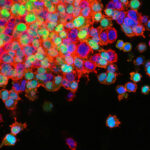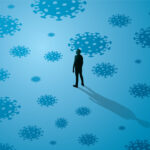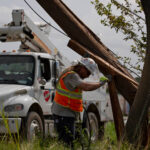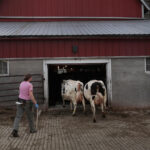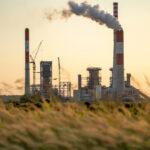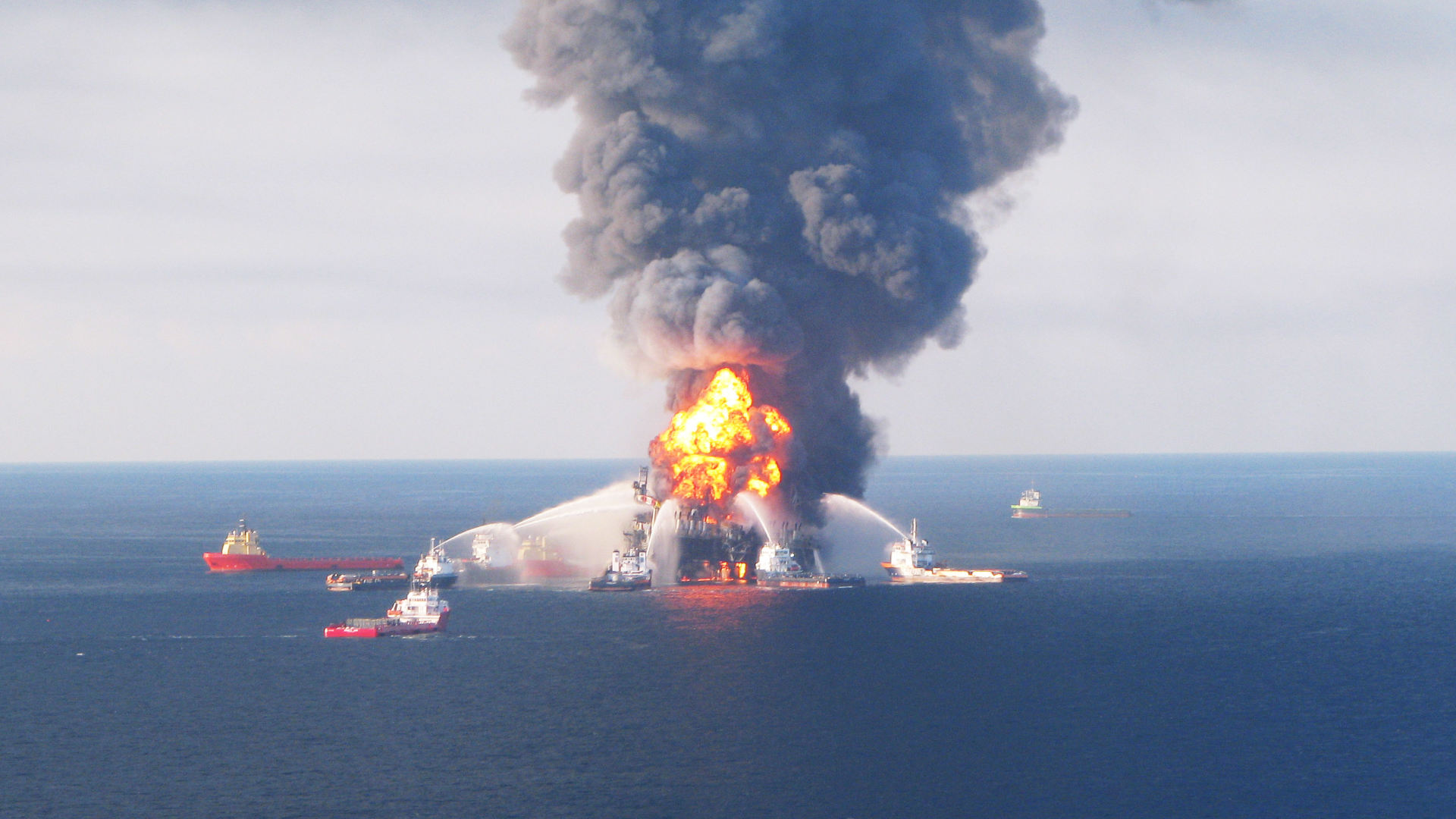How Scientists Can Help Reporters Cover Disasters
Environmental disasters naturally spark anxiety as people fear for their personal safety, their homes, and their communities. And while a disaster can be viewed as a crisis, it can also be “a moment of opportunity,” writes ocean chemist Christopher Reddy in his new book, “Science Communication in a Crisis: An Insider’s Guide.” A crisis, he points out, can be “a time when you can provide clarity and information, thereby helping to affect the outcome of the event in a positive manner.”
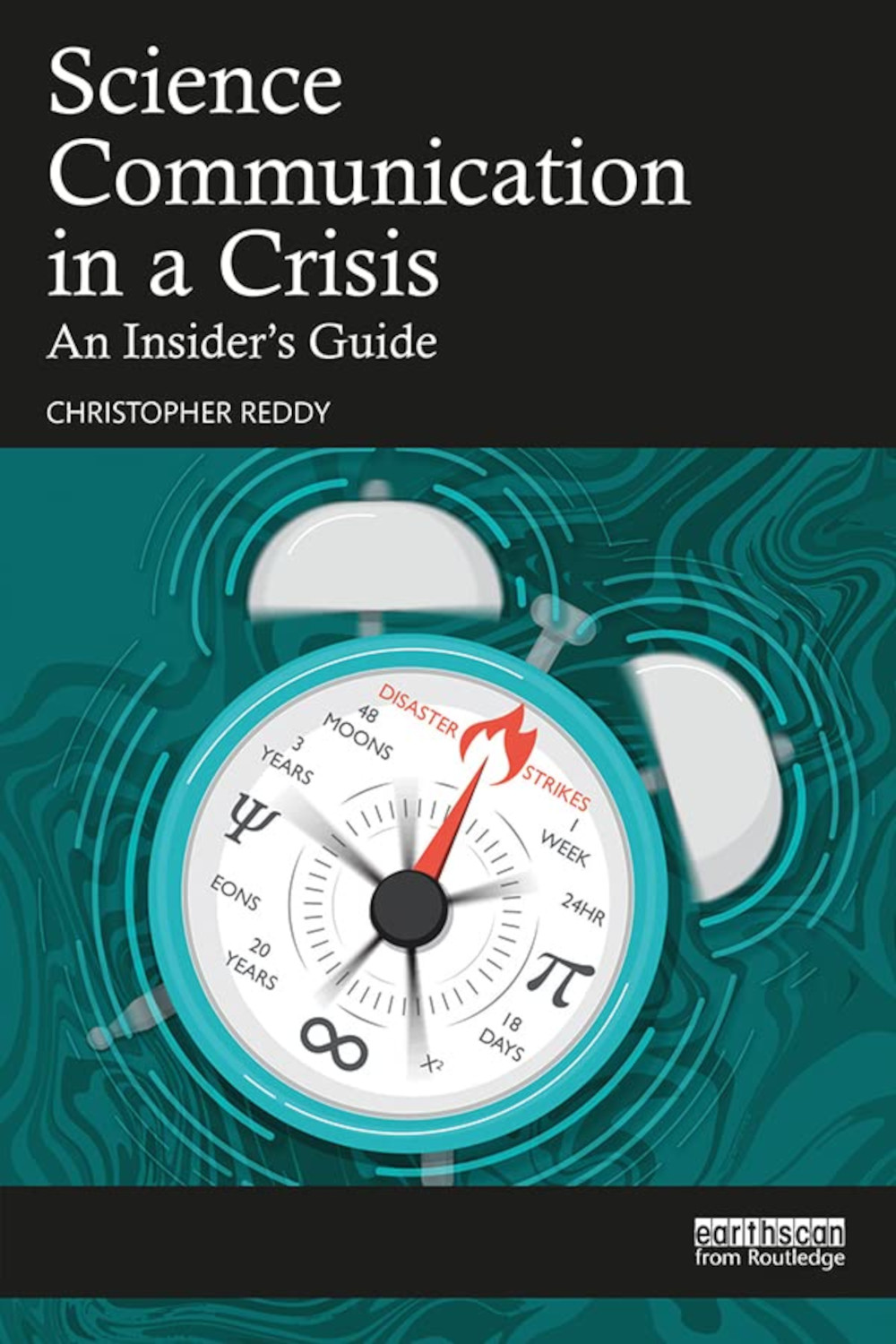
“Science Communication in a Crisis: An Insider’s Guide,” by Christopher Reddy (Routledge, 172 pages).
Reddy, a senior scientist in the Department of Marine Chemistry and Geochemistry at Woods Hole Oceanographic Institution and a faculty member in the MIT-WHOI joint program in oceanography, researches the impact of oil spills, plastic pollution, and other contaminants. For more than 25 years he’s studied ocean disasters around the globe, and is often called upon for his expertise when disaster strikes — as he was, for example, during the 2010 Deepwater Horizon oil spill in the Gulf of Mexico. That spill, the largest such event in history, followed an explosion on a drilling rig owned by the oil and gas giant BP.
“At the end of the day, I’m curious about what happens when nature responds to chemicals,” Reddy says, “and how can we harness that information.”
Our interview was conducted over Zoom, and has been edited for length and clarity.
Undark: As the Deepwater Horizon disaster unfolded, you were often called on as an expert. What were some of the challenges in talking to the media about that event?
Christopher Reddy: I remember just always saying, “I know, you’ve heard this before, but it’s unprecedented.” And the other thing that I kept trying to remind folks of — there’s a mantra in the oil spill business of industry responders, that no oil spill has ever been as bad as it’s been predicted.
But on the flip side, I had a lot of media training and exposure by then. I’m not going to lie, there is a certain thrill in your life when people finally care about what you do, right? And so I remember, sadly, being excited that so many people wanted to talk to me. And that I was the expert.
What I started to see, often, was this idea — that was really crystallizing to me within the first month or so — that this crisis was getting played in the media, and elsewhere, like a sporting event: There’s the good guys and the bad guys, the Yankees and the Red Sox, or whatever is your equivalent. And I thought folks were treating science like a house of cards.
I was becoming increasingly frustrated that folks didn’t understand that science is more like a jigsaw puzzle, which is something I really embrace more and more.
UD: Can you expand on that a little?
CR: You had a whole series of hand-to-hand combat events that were playing out — you know, BP is saying that the flow rate is less, and then there’s a scientist who’s saying otherwise. And the nuance of it was getting lost. Early on, it was a little crazy.
It just always seemed like there had to be a pressure point, a point of a conflict, and that there were two sides of this conflict. And I always also got the vibe that it was very clear one was right, the other one was wrong. And that there seems to be a lack of nuance.
UD: You point out that in the days and weeks following Deepwater Horizon, scientists and other experts were often talking over one another, and often hearing each other’s views only via the media. In the book, you wrote that “the background noise was almost deafening.” How can that sort of chaos be avoided in the wake of a disaster?
CR: It’s tricky, right? The way it gets avoided is before the crisis happens. How we speak to each other as scientists, how we create debate, how we play as big skeptics, but are also willing to listen and be changed — is not ideally portrayed by the media. I think the way to avoid it is to explain to scientists that the way we speak to each other is not the way that you speak to the media.
We go back and forth, and we actually create a lot of debate among ourselves. Whereas creating debate, for a scientist in the media, is an opportunity for a lot of misinformation. A lot of these interviews you’ll hear were scientists either being absolutely confident that something was going to happen, or they say these are all the things that we don’t know. When a scientist says “we don’t know” those are the breeding grounds for misinformation. And in reality, we usually know a lot. So I tell scientists, when you’re being interviewed, be mindful of who’s listening and then start off with all the things we do know.
UD: You say the public was deeply untrusting of what they were hearing both from BP and from the government. What can be done so that there’s more trust the next time there’s a disaster?
CR: Sadly, Deepwater Horizon was still when the wounds of Hurricane Katrina were still open. And I think there were a lot of sensitive, non-healing, festering wounds that were delivered by, in their minds, the government. And suddenly, they were struggling with trusting the government to get information about the new crisis, when they were still disappointed and hurt and confused, and not healed from the last big event, Katrina.
I think how you build trust with science to the lay public is to work from a local perspective. I think often our best communicators are the scientists and the engineers and health professionals who live in your same ZIP code or county or state, who have a little bit more understanding of your culture, what matters to you, what is the value system of that region, and what is the past history of how things were handled.
UD: Let’s turn to a more recent crisis, the Covid-19 pandemic. What went through your mind, as you watched, say, Anthony Fauci trying to give Americans vital information during the pandemic?
CR: I was pretty sure this was all going to play out the way I thought it was. That there was going to be a significant amount of misinformation; that the uncertainty was going to wax and wane. I had seen Fauci give a talk years ago — the American Association of Advancement of Science or somewhere — and I just remember going, never in the history of mankind that I could think of were we ever better suited to have the talent and experience and knowledge and savviness of Anthony Fauci as we were in the early days of Covid.
Nobody had a better pedigree. And the fact that Trump didn’t fire Fauci says it all.
UD: On the other hand, there were many people who didn’t like what Fauci was saying, and he received death threats.
CR: A lot of this stuff is simply inconvenient, or frustrating. And Fauci just happened to be the right guy at the right place. The problem is that everybody thinks that all these events should have a happy ending. There’s are no happy endings during a crisis, right? It’s all about making a bad thing from getting worse, and being nimble, and using the information that you have in hand at that moment to lead to the best outcome.
And while the information may be constantly changing, the point is, you have to be willing to recognize that we take what we can get to come out of it as best as possible. And that I think was lost on a lot of folks — this idea that there isn’t going to be a happy ending.
UD: You mentioned in your book that while you were a graduate student, your supervisor cautioned you against talking to the media. What was he worried about?
CR: Well, my Ph.D. advisor was an absolutely lovely man, Jim Quinn. And Jim was a very organized, loving, thoughtful guy who took great pride in advising his students, and took great pride that the greatest outcome of his career would be the success of his students. He gave me that advice and said “Don’t talk to the media,” because he was going on vacation in the midst of a decent-sized oil spill in my backyard, in Rhode Island, in 1996. I believe he was worried about my career, and my life. He was like, “You do not have the training, you do not want to get in a ‘gotcha’ moment.”
I think what he was thinking was that I was going to go collect samples — I was going to go analyze them. And then I think he thought that I might do a press release, or I might call up the local Channel 10, and stand on the steps of my university, without checking with our press officer or anything else, and make statements about what I’m finding, and provide unskilled and unpolished, and un-nuanced responses to the media, which in turn might have made things much worse.
UD: When you talk to young scientists today, what advice do you give them about speaking to the media?
CR: I usually tell them that they [the media] are not the enemy. And if I have the time, I’ll tell them that journalists and scientists have a lot more in common — we both like to chase, we both like to investigate, and we like to write up what we find, and do it in a clever way, that people leave nourished. And you will be surprised how that relaxes a lot of scientists.
But you have to prepare, and you have to be mindful of who the person is — read what the reporter has written. You have to treat an interview with the same level of diligence and respect and appreciation that you would if you were going to talk to a colleague about something. Why would you treat a reporter any less?
And then I do a couple other things. One, I always give them my cellphone number. And I underscore the significance that they have to call me back if they need something. If you’re stuck, call me. And I almost always follow up after a phone call, “Hey, it was great to talk to you. I mentioned these three papers; I talked too fast, here are the three papers.”
And, after the piece is written, I usually write back if I can. And in most cases, they do a great job. If I think that I had a connection with them, I will always tell a reporter: “If you ever have any environmental questions again, like on pollution, contact me. If you have questions about Earth sciences or ocean sciences and you can’t find an expert, come to me and I will find somebody for you.” And I think that works out really well.


